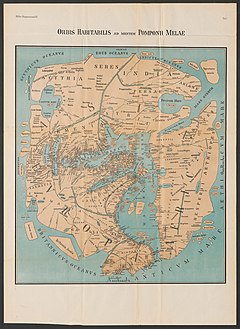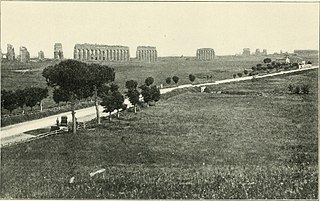
Fable is a literary genre: a succinct fictional story, in prose or verse, that features animals, legendary creatures, plants, inanimate objects, or forces of nature that are anthropomorphized and that illustrates or leads to a particular moral lesson, which may at the end be added explicitly as a pithy maxim or saying.
A stock character is a stereotypical fictional character in a work of art such as a novel, play, film, or a movie whom audiences recognize from frequent recurrences in a particular literary tradition. Stock characters are archetypal characters distinguished by their flatness. As a result, they tend to be easy targets for parody and to be criticized as clichés. The presence of a particular array of stock characters is a key component of many genres. The point of the stock character is to move the story along by allowing the audience to already understand the character.

Ivan Andreyevich Krylov is Russia's best-known fabulist and probably the most epigrammatic of all Russian authors. Formerly a dramatist and journalist, he only discovered his true genre at the age of 40. While many of his earlier fables were loosely based on Aesop's and La Fontaine's, later fables were original work, often with a satirical bent.
Gaius Julius Phaedrus (; Greek: Φαῖδρος; was a 1st-century CE Roman fabulist and the first versifier of a collection of Aesop's fables into Latin. Few facts are known about him for certain and there was little mention of his work during late antiquity. It was not until the discovery of a few imperfect manuscripts during and following the Renaissance that his importance emerged, both as an author and in the transmission of the fables.

Pomponius Mela, who wrote around AD 43, was the earliest Roman geographer. He was born in Tingentera and died c. AD 45.

Aesop's Fables, or the Aesopica, is a collection of fables credited to Aesop, a slave and storyteller believed to have lived in ancient Greece between 620 and 564 BC. Of diverse origins, the stories associated with his name have descended to modern times through a number of sources and continue to be reinterpreted in different verbal registers and in popular as well as artistic media.

The Boy Who Cried Wolf is one of Aesop's Fables, numbered 210 in the Perry Index. From it is derived the English idiom "to cry wolf", defined as "to give a false alarm" in Brewer's Dictionary of Phrase and Fable and glossed by the Oxford English Dictionary as meaning to make false claims, with the result that subsequent true claims are disbelieved.

"The Tortoise and the Hare" is one of Aesop's Fables and is numbered 226 in the Perry Index. The account of a race between unequal partners has attracted conflicting interpretations. It is itself a variant of a common folktale theme in which ingenuity and trickery are employed to overcome a stronger opponent.
Titus Pomponius Atticus is best known for his correspondence and close friendship with prominent Roman statesman Marcus Tullius Cicero. Atticus, who was an editor, banker, and patron of letters, was from a wealthy Roman family of the equestrian class and Pomponian ancestry.

Fables is an American comic book series created and written by Bill Willingham, published by DC Comics' Vertigo. Willingham served as sole writer for its entirety, with Mark Buckingham penciling more than 110 issues. The series featured various other pencillers over the years, most notably Lan Medina and Steve Leialoha. Fables was launched in July 2002, and concluded in July 2015.

The Atellan Farce, also known as the Oscan Games, were masked improvised farces. The games were very popular in Ancient Rome, and usually put on after longer pantomime plays. The origin of the Atellan Farce is uncertain but the farces are similar to other forms of ancient theatre, such as the South Italian Phlyakes, the plays of Plautus and Terrence, and Roman mime. Most historians believe the name is derived from Atella, an Oscan town in Campania. The farces were written in Oscan and imported to Rome in 391 BC. In later Roman versions, only the tridiculous characters read their lines in Oscan, while the others read in Latin.
Publius Pomponius Secundus was a distinguished statesman and poet in the reigns of Tiberius, Caligula, and Claudius. He was suffect consul for the nundinium of January-June 44, succeeding the ordinary consul Gaius Sallustius Crispus Passienus and as the colleague of the other ordinary consul, Titus Statilius Taurus. Publius was on intimate terms with the elder Pliny, who wrote a biography of him, now lost.

The Fox and the Grapes is one of the Aesop's fables, numbered 15 in the Perry Index. The narration is concise and subsequent retellings have often been equally so. The story concerns a fox that tries to eat grapes from a vine but cannot reach them. Rather than admit defeat, he states they are undesirable. The expression "sour grapes" originated from this fable.

A Fable is a 1954 novel written by the American author William Faulkner. He spent more than a decade and tremendous effort on it, and aspired for it to be "the best work of my life and maybe of my time".
It won the Pulitzer Prize and the National Book Award, but critical reviews were mixed and it is considered one of Faulkner's lesser works. Historically, it can be seen as a precursor to Joseph Heller's Catch-22.
Gaius Pomponius Graecinus was a Roman politician who was suffect consul in 16. He was probably a novus homo raised to the Senate by Augustus. He was a friend and patron of the poet Ovid, who addressed three letters of his Epistulae ex Ponto to him c. 10.

Aesop was a Greek fabulist and storyteller credited with a number of fables now collectively known as Aesop's Fables. Although his existence remains unclear and no writings by him survive, numerous tales credited to him were gathered across the centuries and in many languages in a storytelling tradition that continues to this day. Many of the tales are characterized by animals and inanimate objects that speak, solve problems, and generally have human characteristics.

The gens Pomponia was a plebeian family at Rome. Its members appear throughout the history of the Roman Republic, and into imperial times. The first of the gens to achieve prominence was Marcus Pomponius, tribune of the plebs in 449 BC; the first who obtained the consulship was Manius Pomponius Matho in 233 BC.
Crya or Krya was a city of ancient Lycia, according to Stephanus of Byzantium. He quotes the first book of the Epitome of Artemidorus, and the following passage: "and there are also other islands of the Cryeis, Carysis and Alina." Pliny who may have had the same or some like authority, says Cryeon tres, by which he means that there were three islands off or near to Crya; but he does not name them. Pliny places Crya in Caria, and he mentions it after Daedala, under the name of Crya fugitivorum. According to his description it is on the gulf of Glaucus. The Stadiasmus Maris Magni places it, under the name Κρούα, 160 stadia from Telmissus to the west. Pomponius Mela speaks merely of a promontorium Crya. In Ptolemy the name is written "Carya", and it is assigned to Lycia.
Caryanda or Karyanda was a city on the coast of ancient Caria in southwestern Anatolia. Stephanus of Byzantium describes it as a city and harbour (λίμην) near Myndus and Cos. But λιμήν, in the text of Stephanus, is an emendation or alteration: the manuscripts have λίμνη ('lake'). Strabo places Caryanda between Myndus and Bargylia, and he describes it, according to the common text, as "a lake, and island of the same name with it;" and thus the texts of Stephanus, who has got his information from Strabo, agree with the texts of Strabo. Pliny simply mentions the island Caryanda with a town; but he is in that passage only enumerating islands. In another passage he mentions Caryanda as a place on the mainland, and Pomponius Mela does also. Scylax of Caryanda, one of the most famous mariners and explorers of ancient times, was a native of Caryanda. He lived in the late 6th and early 5th centuries BCE and served the Persian king Darius I.













